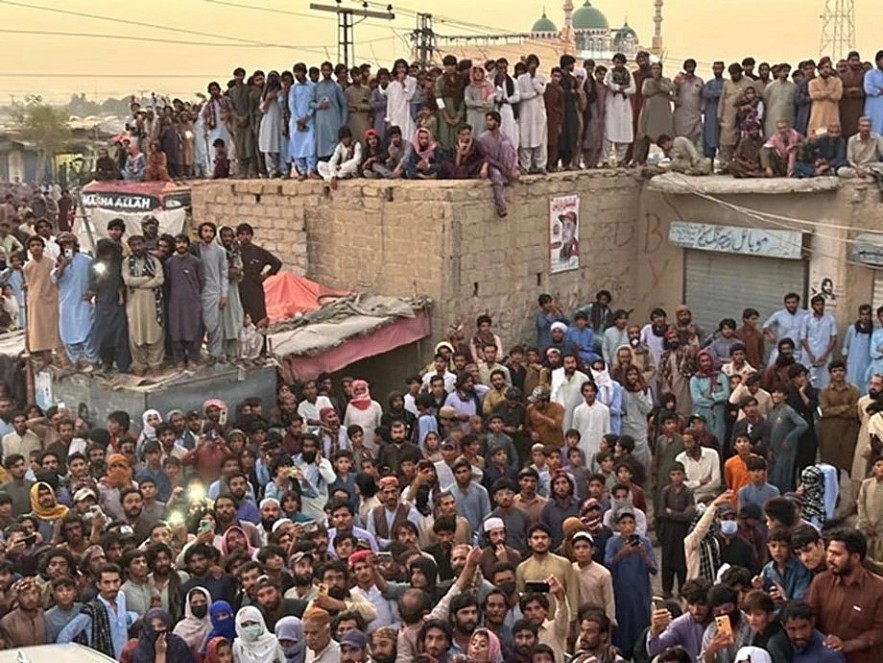18 people reported missing in Balochistan, five dead bodies found in second half of July: Report
 |
| Baloch people sit-in protest (File Photo/X @BalochYakjehtiC). Image Credit: ANI |
As Balochistan continues to face a dire situation with enforced disappearances, 18 individuals were reported missing in the last weeks of July this year, with five dead bodies found, The Balochistan Post stated in its bi-weekly report. Enforced disappearances in Balochistan, an issue that has persisted for more than twenty years, for which, Baloch nationalists, activists, and human rights groups have been regularly accusing Pakistani intelligence agencies and security forces of carrying out these abductions and extrajudicial killings.
Despite the considerable evidence provided by these organizations, the Pakistani government denies any involvement. Over this period of the second half of July 2024, 18 individuals were reported missing, four were released, and five dead bodies were discovered.
However, the report does not include those detained in connection with the Baloch Raaji Muchi (Baloch National Gathering) in Gwadar and other areas. These detainees, who include women, children, the elderly, and men, number in the hundreds, with estimates suggesting over 500 people may have been abducted.
The exact figures remain unclear due to a partial blackout of mobile networks. According to the report, the regions most affected by enforced disappearances are Quetta, Kech, Mashkay, and Awaran. In July, several individuals were reported missing. The report detailed the victims of enforced disappearances.
Enforced disappearances and extrajudicial killings in Balochistan are part of a disturbing trend known as the "kill and dump" policy. This strategy, reportedly employed by state actors including Pakistani intelligence agencies and security forces, involves abducting individuals, often activists, nationalists, or perceived dissenters, and then executing them, reported The Balochistan Post. The bodies are typically dumped in remote or public places to intimidate and control the population.
In response to these abuses, local activists and human rights groups continue to document and advocate against these practices. Their efforts, however, are often met with severe repression and further threats. However, the resistance movement in Balochistan has seen notable developments in recent years as Baloch nationalists, activists, and various groups continue to challenge the Pakistani state's policies and seek greater autonomy or independence.
The increased activism has led to a heightened crackdown by Pakistani security forces. This includes increased military operations, curfews, and widespread arrests, further exacerbating the conflict. (ANI)
Recommended
 Economy
Economy
"Asia Economic Cooperation Forum 2025" to be Held in Shanghai, China
 Economy
Economy
CNBC: Vietnam Officially Becomes The World's "Durian King"
 Economy
Economy
